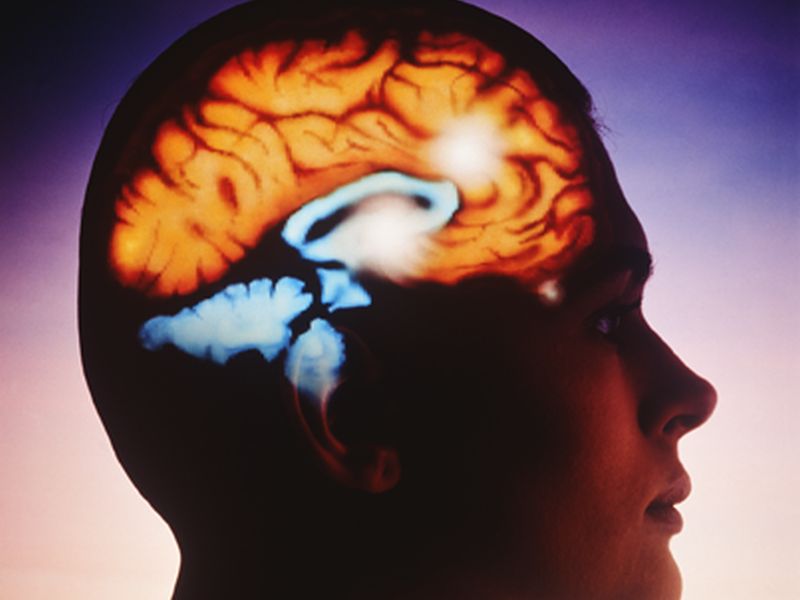

Hepatitis Infection May Raise Risk for Parkinson's Disease
New study adds to evidence that these conditions might be linked somehowThursday, March 30, 2017

THURSDAY, March 30, 2017 (HealthDay News) -- People with the liver infection hepatitis may be at heightened risk of developing Parkinson's disease, a large new study suggests.
The study, published online March 29 in Neurology, is the second in the past year to link hepatitis to Parkinson's.
Specifically, the new study found that people who'd been infected with hepatitis B or C were 51 percent to 76 percent more likely to develop Parkinson's, compared to people who'd never had hepatitis.
The researchers don't know why the connection exists. And the study cannot prove a cause-and-effect link.
But the association between Parkinson's disease and hepatitis appears to be "strong," according to Dr. Michael Okun, national medical director of the Parkinson's Foundation.
Last year, a study in Taiwan found that people with hepatitis C faced an increased risk of Parkinson's. Now the new findings, based on millions of British adults, implicate hepatitis B as well.
"It's a remarkable finding," said Okun, who wasn't involved in the research. "There's a strong association between hepatitis and Parkinson's, and the association is with hepatitis B, too -- which would make it an even bigger problem."
Hepatitis B and C are viral infections of the liver. In the United States, hepatitis B is most often spread through sex, while hepatitis C is usually transmitted by sharing injection-drug needles, according to the U.S. Centers for Disease Control and Prevention (CDC).
Both infections -- hepatitis C, in particular -- can become chronic. The CDC estimates that up to 2.2 million Americans have chronic hepatitis B, and up to 4 million have chronic hepatitis C.
Parkinson's disease, meanwhile, is a movement disorder that causes tremors, stiff limbs, and balance and coordination problems. There is no cure, and the symptoms gradually worsen over time.
The root cause of Parkinson's is unclear, but as the disease progresses, the brain loses cells that produce dopamine -- a chemical that helps regulate movement.
What does that have to do with hepatitis?
It's not clear. But, Okun pointed out, liver cirrhosis -- a serious scarring of the liver -- is known to sometimes cause movement problems similar to Parkinson's.
Beyond that, he said, some researchers suspect that the Parkinson's process may start not in the brain, but in the "gut."
People who are eventually diagnosed with Parkinson's commonly have constipation and digestive problems years before their movement symptoms. And recent animal research has hinted that the gut "microbiome" -- the trillions of bacteria that dwell in the digestive system -- may be involved in setting the stage for Parkinson's.
But, Okun stressed, it's far from clear how all of that research might square with the hepatitis/Parkinson's link.
Dr. Julia Pakpoor, the lead researcher on the new study, said there are many unknowns.
The hepatitis virus, itself, may not be the culprit at all, said Pakpoor, of the University of Oxford, in the United Kingdom.
It's possible, she said, that people with hepatitis tend to have other risk factors for Parkinson's -- though it's not clear what those might be.
Another question is whether some hepatitis drugs somehow contribute to Parkinson's. The Taiwan study raises doubts about that, though, because few people with hepatitis C had received drug treatment, Pakpoor's team noted.
The new findings are based on hospital records from over 70,000 adults in the United Kingdom with hepatitis B or C who were admitted between 1999 and 2011. These records were compared with records from over 6 million people with no hepatitis diagnosis.
Overall, 44 people with hepatitis B were eventually diagnosed with Parkinson's; but based on the population as a whole, only 25 cases would be expected. Similarly, 73 people with hepatitis C developed Parkinson's, versus an expected 48 cases.
Both Pakpoor and Okun said more studies, in different populations, are needed to confirm the hepatitis/Parkinson's connection.
If the link is confirmed, then researchers need to figure out the "why."
Obviously, most people with hepatitis don't develop Parkinson's. So, Okun wondered, is it possible that hepatitis contributes to Parkinson's only in people with certain gene variants that raise the risk of the movement disorder?
He also pointed to another big question -- would treating hepatitis early make a difference in Parkinson's risk?
"We don't know. Right now, there's no evidence that if you're treated quickly, you won't get Parkinson's," Okun said.
For now, Okun suggested that people with a history of hepatitis B or C be aware of the link. And if they do develop tremors or other movement problems, he said, they should not "brush it off."
"Get a referral to a neurologist for an evaluation," Okun advised.
SOURCES: Julia Pakpoor, B.M., B.Ch., University of Oxford, U.K.; Michael Okun, M.D., national medical director, Parkinson's Foundation, and chair, neurology, University of Florida College of Medicine, Gainesville, Fla.; March 29, 2017, Neurology, online
HealthDay
Copyright (c) 2017 HealthDay. All rights reserved.
News stories are written and provided by HealthDay and do not reflect federal policy, the views of MedlinePlus, the National Library of Medicine, the National Institutes of Health, or the U.S. Department of Health and Human Services.
- More Health News on:
- Hepatitis B
- Hepatitis C
- Parkinson's Disease




























.png)











No hay comentarios:
Publicar un comentario